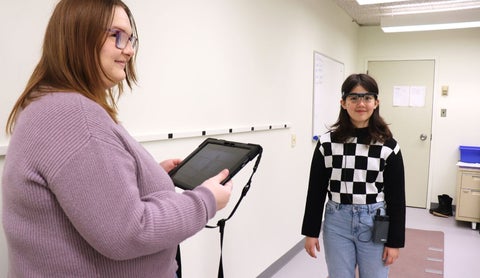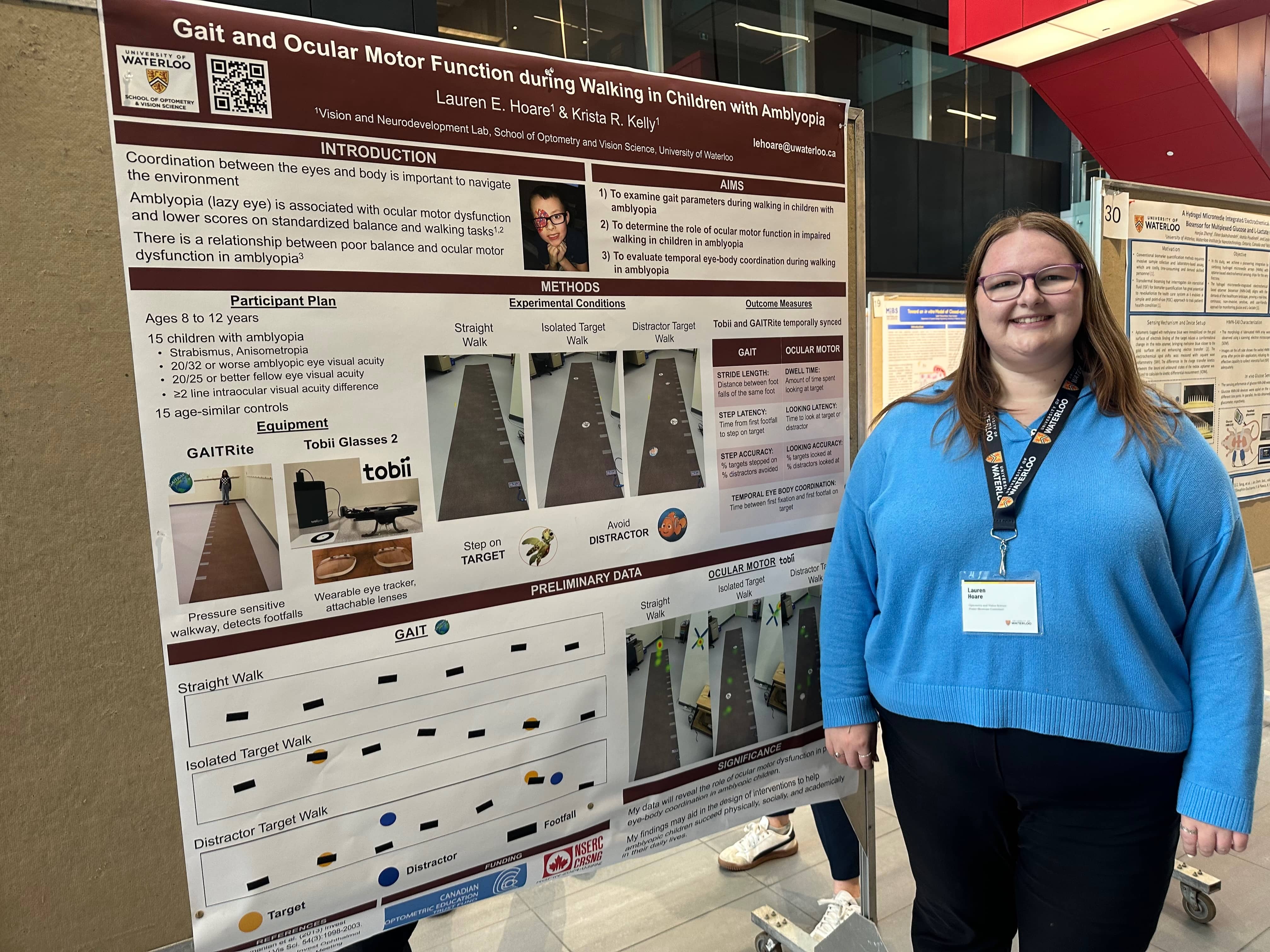
Science that matters: Lauren Hoare
Lauren Hoare is a MSc Candidate in the School of Optometry and Vision Science whose research is making significant strides – literally – in understanding amblyopia, commonly known as lazy eye.
By Alex Morrison
Graduate Recruitment Officer
Amblyopia is an eye and brain condition that affects two to four per cent of children in Canada alone – approximately 150,000 to 300,000 children. Amblyopia, in which the brain prioritizes input from one eye over the other, can arise because of poor vision in one eye. This can result in issues such as poor depth perception, difficulty reading, and deficient motor skills.
Lauren Hoare's research focuses on how amblyopia impacts children's walking abilities. She has found that children with amblyopia exhibit more variability in their walking patterns and are less accurate at stepping on targets. These findings are crucial as impaired motor skills can significantly impact children's daily lives in various ways that are often easily dismissed, such as appearing to be 'clumsy'.

Amblyopia’s effect on children's daily lives goes beyond the physical. Academic performance and social development are just two examples of how this ocular imbalance, if left untreated, can have long-term consequences. By analyzing the impact on walking, Hoare hopes to develop interventions and treatments to support these children.
Hoare's interest in vision sciences was sparked by her own experience with strabismus – an eye turn – as a child. Frequent visits to the optometrist from a young age nurtured her passion for visual development and motivated her to help children facing similar challenges.
In an effort to make her study both fun and effective, the tests include recognizable characters from popular children’s films that act as targets for participants to step on. This, paired with a treasure chest of toys, serves as a motivating factor that keeps the children interested and makes the tasks feel like a game, ensuring accurate and meaningful results.
“Working with children and trying to develop new approaches to increase their engagement with the study has been one of the best parts of my research," says Hoare.
She attributes being a member of the University of Waterloo graduate community has been instrumental in her personal and professional growth. By attending numerous seminars and conferences and forming strong connections with students and faculty, she has built a robust network of professionals and academics. She gives back to the community by serving on the Science Student Council and co-hosting the Writing Café, a regular event that gets vision science graduate students together to work on their thesis.
Her advice to prospective students looking to pursue a Master’s or PhD is to push themselves in the program, get involved, and embrace everything it has to offer. “The support of the community can change your life in unexpected ways,” says Hoare. “I actually used to be really afraid of public speaking when I first started, but after presenting in so many settings I was able to overcome that fear. It’s important to have fun and make the most of the opportunities available.”
Today, she is comfortable presenting for crowds at larger functions and even won the Daytech prize for the best talk at the Vision Science Grad Conference in 2024, sponsored by the University of Waterloo's School of Optometry and Vision Science.
Long term, her aspirations lie in visual development, vision research, and eye care. She is hopeful that the knowledge gained from her research will improve patient care for children with amblyopia and other pediatric eye conditions. She intends to pursue her work further, whether that means continuing her research in a PhD program or applying it as an optometrist or orthoptist.
Hoare's commitment to research, coupled with positive experiences as a Waterloo graduate, underscores the significance of her work and the nurturing environment that has enabled her to flourish. Her contributions to understanding and addressing amblyopia are paving the way for better interventions and treatments, making a difference in the lives of children and our greater communities.